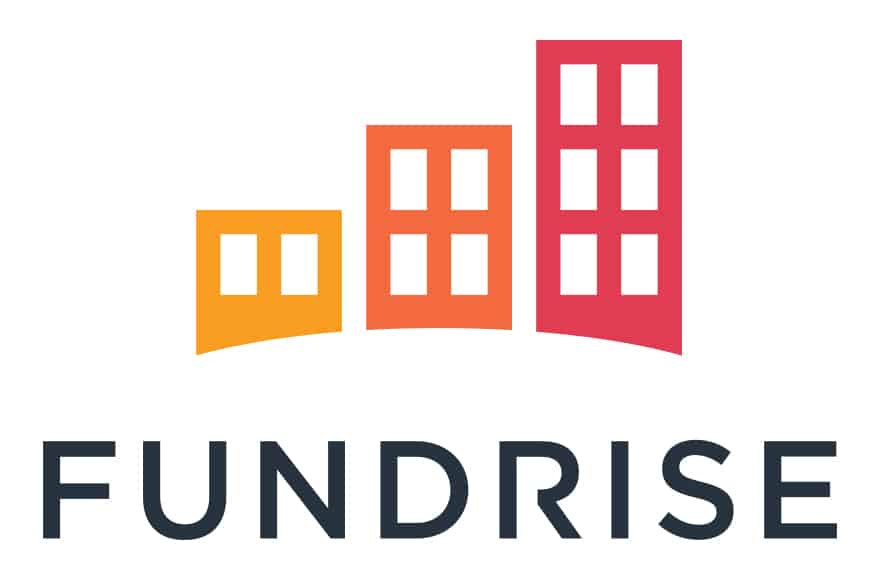Most investment portfolios and retirement plans are invested in stocks and fixed-income investments.
But real estate is an excellent portfolio diversification because it’s a “hard asset.” As well, the long-term investment performance of real estate is hard to argue with.
Adding some real estate to your portfolio can improve your investment returns over the long haul.
Real estate is a scary investment for a lot of people. And it can be if you only think in terms of owning a piece of property to rent out or to fix and flip.
But there are more than just two ways to invest in real estate. And the great thing is there’s a way to invest in real estate which can work for anybody, even if you don’t have a ton to invest right now.
I was able to come up with 11 (and a bonus), and here they are:
Table of Contents
- 1. Invest in Fundrise
- 2. Owning Your Own Home: Wait, What?
- 3. Buy Rental Properties to Generate Income
- 4. Invest in Real Estate Through Online P2P Platforms
- 5. Investing in Commercial Real Estate
- 6. As Seen on TV: Fix-and-Flip
- 7. My Own Failed Attempt at Becoming a Real Estate Entrepreneur
- 8. Rent Out Space in Your Home or on Your Property
- 9. Real Estate Investment Trusts (REITs)
- 10. Real Estate Limited Partnerships (LP)
- 11. Real Estate ETFs and Mutual Funds
- 12. Real Estate Investing Through Notes and Tax-Lien Certificates (ADVANCED)
- Final Thoughts on How to Invest in Real Estate Invest
1. Invest in Fundrise
A lot of people want to jump into real estate investing but don’t want to worry about dealing with tenants, handling repairs, and managing payments, or undergoing the grueling process of learning how to invest in real estate by trial and error (as I did).
Luckily, you can put your money into real estate options without having to do all that.
Fundrise is an online investment service that allows you to put your money in real estate and other private assets.
They are managed by Fundrise professionals while you sit back and watch your money grow.
Why Fundrise? It’s simple: they have a history of excellent returns! Since 2017 they have averaged an annual return of 7.56%.
I probably don’t need to tell you, but that’s A LOT better than you’ll find with most other investments.
Sure, they can’t guarantee this kind of return, but over the past four years, they have posted great numbers.
One reason people love Fundrise is that it’s easy to get started. You can quickly compare accounts and create your profile.
They help you determine which investments are best by requiring a short questionnaire.
Depending on your answers, they will suggest one of their three investment styles:
- Long-term Growth
- Balanced Investing
- Supplemental Income
With as little as $500, you can invest in the Fundrise Growth eREIT. They charge very low fees to invest through the platform, but returns have recently been in double digits.
They have additional investments available for accredited investors.
What about the fees? Don’t worry, they aren’t too bad. Fundrise only charges a 0.85% management fee every year. Compared to other brokerages, this is minimal.
The long and short of it is that you can get above-average returns on your money by investing in real estate. And since Fundrise offers real estate investing without owning the physical property, you can earn this money without getting your hands dirty.
Here’s a video review I recorded sharing my Fundrise account opening experience:
Peerstreet enables you to invest in real estate loans – mainly for fix-and-flip deals with small investors. You can also invest with as little as $1,000, but you must be an accredited investor to do so.
You will invest in loan “notes,” which are slivers of loans, and not the loans themselves. Loans run from six months to two years and typically pay interest rates of between 6% and 12%.
RealtyShares enables you to invest in either commercial or residential real estate projects. With as little as $5,000, you can invest in either real estate loans or equity. The platform enables you to invest in real estate across the US and in a wide variety of different projects.
These can include new construction, rehabs, income properties, or loans.
| I’ve been investing with Fundrise since 2018. Disclosure: when you sign up with my link, I earn a commission. All opinions are my own. |
2. Owning Your Own Home: Wait, What?
While you might think that owning your own home is mostly about providing shelter, think again. If properly managed, your own home can be the single best way to invest in real estate in a first investment.
What do I mean by “if properly managed”?
It means you buy a home at fair market value or less. It’s also better to buy the least expensive home in a neighborhood rather than the most expensive.
You also pay off your mortgage in 30 years or less.
Finally, it means maintaining the property in marketable condition without over-improving it (spending more on upgrades than you’ll gain in higher market value).
There are two ways your home becomes an investment:
- Amortization of Your Mortgage. While you’re living in your home and making your mortgage payments faithfully, the loan is gradually amortizing away. At the end of 30 years, you’ll own it mortgage-free. That will give you 100% equity in your home.
- Price Appreciation. A 3% annual appreciation rate means that a home will double in value in the 30 years it takes to pay off the mortgage. The $300,000 home you buy today will be worth $600,000 in 30 years.
Let’s say that you buy a home today for $300,000, with a 5% down payment ($15,000). Your equity in the home will go from $15,000 to $600,000 in 30 years.
That’s a serious investment. And while the home is increasing your wealth, it’s also providing shelter for you and your family.
No other investment combines two benefits the way owning a home does. Now, that’s how to invest in real estate!
Warning:
3. Buy Rental Properties to Generate Income
This is one of the most time-honored ways to build long-term wealth. The same forces that make your own home such a great investment – mortgage amortization and real estate appreciation – also work with rental properties.
However, investing in real estate rentals also adds an income component to the mix.
At a minimum, the rent that you receive on an investment property should cover the expenses of owning it. If it does nothing more, your tenant will effectively be paying for your investment. When the rent is higher than your expenses, the property will generate a positive cash flow.
If it does produce a positive cash flow, the income can come to you tax-free. This is because you can take depreciation expenses on the property. Since it’s an investment property, you’re allowed to “expense” the improvements over many years.
However, since depreciation is a paper expense (no actual cash outlay), it can offset your net rental income.
As rents rise – while the monthly payment stays relatively flat – your net income will rise. Once the property is paid off, the rental income will be mostly profit.
“This is why investing in real estate rentals is one of the best ways to invest in real estate.”
There are some things that you need to be aware of with rental properties:
- They require large down payments, generally 20% or more of the purchase price.
- It’s more difficult to qualify for a mortgage on an investment property than on an owner-occupied home.
- There are vacancy factors – times in between tenants when there is no rent income.
- Repairs and Maintenance – painting, replacing carpets, etc. – will need to be done after each tenant moves out.
Each of these factors can be overcome, but you need to be aware that owning rental property isn’t always a smooth ride.
If you are looking for a lower-risk profile and less hands-on approach when investing, rental properties may not be the best way to invest in real estate for you. Don’t worry; there are still plenty more to come!
4. Invest in Real Estate Through Online P2P Platforms
P2P investment platforms are springing up that are based on real estate investing. The process is commonly referred to as crowdfunding. That’s where groups of investors get together to pool money for specific real estate-related investments.
These platforms provide you with a way to invest in real estate online through different types of real estate and in different ways. Your investment isn’t as liquid as it would be if you invested in mutual funds for ETFs, but it’s less complicated than real estate LPs.
They’re probably closest to REITs, but you have more control over what it is you invest in. With a P2P platform, you can select the deals that you invest in.
This also gives you an opportunity to diversify a relatively small amount of money across many different deals.
Real estate crowdfunding platforms have been around for a few years now. But there’s already a wide variety of platforms that give you the opportunity to choose how and where you want to invest.
Meanwhile, new platforms are coming online all the time.
If you are not sure what is the best way to invest in real estate for you, these next options are definitely worth giving a quick Google search.
Here are 2 of the best ways to invest in real estate online:
- RealtyShares
- PeerStreet
RealtyShares enables you to invest in either commercial or residential real estate projects. In fact, a lot of investors have titled RealtyShares as the “Lending Club of Real Estate.”
With as little as $5,000, you can invest in either real estate loans or equity (there are a few investments you can participate in for $1,000). The platform enables you to invest in real estate across the US, and in a wide variety of different projects.
One reason RealtyShares is popular is because of how much work they do for you. When an investment opportunity pops up, they are going to look at the executives of the real estate company and the title reports and inspections. They are going to get as much information as possible about real estate.
Now, onto the fees. RealtyShares is going to charge you a 1% annual fee. This is on par with a lot of other P2P companies out there.
These can include new construction, rehabs, income properties, or loans.
Peerstreet enables you to invest in real estate loans – mainly for fix-and-flip deals with small investors. You can also invest with as little as $1,000, but you must be an accredited investor to do so.
You will invest in loan “notes,” which are slivers of loans, and not the loans themselves. Loans run from six months to two years and typically pay interest rates of between 6% and 12%.
5. Investing in Commercial Real Estate
This is a variation of rental property where you invest in office, retail, or warehouse/storage property. It follows the same general pattern. You purchase a property and rent it out to tenants, who pay your mortgage and hopefully generate a profit.
Investing in commercial property is generally more complicated and expensive than investing in real estate rentals on the residential side of things.
So why invest in real estate at the commercial level?
Well, the principle of risk vs. reward determines that commercial properties are thereby more lucrative. Not knowing how to invest in property, especially on the commercial level, can be a very expensive learning curve.
For someone with experience and capital, Investing in commercial real estate is one of the best ways to invest in real estate because of the remarkable gains that can be made if done right.
On the plus side, commercial real estate usually involves long-term leases. Since the property is being rented to a business, they’ll want a multi-year lease. This will ensure the continuity of their business.
A lease can easily be for 10 years or more. The cash flow will be more steady since you won’t be changing tenants every year or two.
Appreciation of the property can also be more generous than it is for residential. This is especially true if the property is producing large annual profits. That’s more likely to happen with commercial property since the tenant often pays for the upkeep of the building in addition to the monthly rent.
Leases can be structured to give the landlord a percentage of the profits of the business as well.
On the downside, commercial property is often subject to the business cycle. During recessions, business revenues decline, and your tenant may have difficulty paying the rent.
The tenant may even go out of business, leaving you with an empty building. Since commercial tenants come in all shapes and sizes, it may take months or years to find a new tenant for your property.
Investing in commercial property is for more experienced investors who have higher risk tolerance. It’s a true high-risk/high-reward investment.
6. As Seen on TV: Fix-and-Flip
HGTV is filled with these. Flip or Flop and Fixer-Upper are two of the most popular, and they make it look easy.
Is it?
Yes and no. It’s easy if you know how to invest in property and a potential disaster if you don’t.
Why invest in real estate just to flip it?
The basic idea is to buy a property that’s in serious need of an update. For that reason, you should be able to buy for a lot less than the current market value of updated homes in the neighborhood.
Example: You buy a house for $100,000 in a $200,000 neighborhood. $40,000 in renovations later, you sell the property for a $60,000 profit.
On TV, it always works. In real life, you have to know property values in the neighborhood to determine where to invest in real estate, and you must be able to buy a house well below its completed market value.
You also have to be able to reliably estimate renovation costs. It helps (a lot) if you can do a lot of the work yourself.
What could go wrong? Flipping houses is the most hands-on and potentially risky way to invest in real estate. The two biggest issues are paying too much for the property upfront or discovering that what you thought to be a minor repair is something much bigger.
For example, that “little bit” of wood rot on the doorframe is hiding the fact that the entire frame of the house is termite-ridden and needs to be torn down.
That’s extreme, and it can usually be determined by a thorough home inspection – which a veteran flipper will always get.
Three Rules:
- Always know the market value of the property on completion,
- The true physical condition of the house, and
- Have an accurate estimate of the renovation costs.
If you’re missing any one of the three, the whole project can go horribly wrong.
For those who have exceptional handy skills, are knowledgeable about how to invest in real estate, and do not mind a challenge, fixing and flipping may be the best way for you to invest in real estate.
7. My Own Failed Attempt at Becoming a Real Estate Entrepreneur
Speaking of going horribly wrong, I chronicled my own failed real estate investing venture in 7 Lessons I Learned From Failing at Real Estate Investing.
This is a cautionary tale from yours truly. Remember how I wrote above, “On TV, it always works”? That was my mistake – thinking it would work just like it does on TV.
“Real Estate Investing Rule #1 – nothing works the way it does on TV – ever!”
I fell for the myth that learning how to invest in real estate was going to be easy. That’s the way they make it look. But I was stepping way outside of my area of expertise. Financial planning is what I’m good at. Turns out that real estate isn’t.
I don’t want to sour you on investing in real estate. A lot of people are making a lot of money by investing in it. I know a few, and I’m sure you do too.
But real estate investing is more challenging than investing in paper assets, like stocks and mutual funds.
If you’re actually investing in properties directly, it’s a very hands-on affair. Even if you’re not getting your hands dirty flipping houses, you still have to get involved in the not-always-pleasant business of buying and selling.
Not everyone’s cut out for that.
If, on serious self-assessment, you recognize you’re not ready to learn how to invest in property, you’re better off leaving real estate investing for those who are well suited for it. Read my article to learn how NOT to invest in real estate.
With that in mind, let’s look at some ways to invest in real estate that are better suited to the real estate challenge among us…
8. Rent Out Space in Your Home or on Your Property
This is probably the easiest way to make money in real estate through direct participation. If you already own a home, you can pick up some extra income by renting out space.
I’m saying “space” for a reason. Most people think in terms of renting out a room to a border. That’s one way to do it.
You can also rent out part or all of any of the following:
- Your Basement
- Garage
- Attic
- An Outbuilding on Your Property
- Driveway
- A Corner of Your Land
Any of these rental arrangements can provide an extra income source, in the same way as renting a room to a border. People and businesses have all kinds of space needs. In a lot of cases, they just need extra space to store their stuff or vehicles.
This is easier to do in some locations than in others.
If your home is located in a rural area, an older downtown area, or in a community that has lax property use restrictions, this can be a real alternative.
But if you live in a suburban area with tight property use restrictions, you’ll run into legal obstacles. And if you live in a neighborhood with a homeowner’s association (HOA), don’t even think about it.
But if your house is located in the right area, and you have extra space, this is a pretty easy way to make extra money in real estate. Knowing where to invest in real estate is key to success in your real estate ventures.
9. Real Estate Investment Trusts (REITs)
REITs are where investing in real estate starts looking a lot, like investing in stocks or mutual funds.
In fact, they’re something like mutual funds for real estate. Larger ones are publicly traded and can be held in a brokerage account or even a retirement account.
A REIT will usually invest in several related properties.
That might be large apartment buildings, office buildings, retail space, industrial property, hotels or warehouses.
This gives you an opportunity to invest in either commercial real estate or large residential projects as a shareholder rather than as an investor with direct responsibility.
Why invest in real estate using REITs?
REITs have advantaged dividend arrangements, too.
The REIT itself pays no federal income tax on the earnings. They distribute 90% or more of those profits to their shareholders as dividends.
The dividends become taxable at the shareholders’ personal tax rate. (They’re not however considered qualified dividends, which get more favorable tax treatment.)
For those looking for ways to invest in real estate that are hands-off, offer tax benefits, and are considered very safe with good returns, I suggest learning how to invest in real estate using REITs.
If you hold a REIT in a retirement account, like a Roth IRA, you won’t have to worry about tax consequences anyway. It’s also an excellent way to add some real estate to diversify your retirement portfolio.
10. Real Estate Limited Partnerships (LP)
Why invest in Real Estate limited partnerships?
These investments are even more like mutual funds than REITs. They’re organized by a general partner, who actually handles the direct management of the properties held in the partnership. All other investors are limited partners.
That means that while you participate in the profits, your losses are limited to your actual investment. This is referred to as “limited liability.”
Much like REITs, limited partnerships give you an opportunity to invest in larger, more complicated real estate deals with just a few thousand dollars.
Real estate limited partnerships are a lot like owning stocks. If the partnership has good management and invests in successful deals, it can be very profitable. You can earn a steady stream of dividends that are higher than what you can get on stocks.
But at the opposite end, a poorly managed LP can cost you your entire investment. For LPs with extensive knowledge of how to invest in real estate to mitigate risk and provide consistent gains, this investment can be very profitable. Many are set up primarily as tax shelters.
Since real estate generates large amounts of depreciation, the tax loss that LPs generate may be more important than producing any actual profits.
Real estate LPs are one of those who “proceed with caution“ investments.
For people with experience in investing in real estate, who are looking for long-term investments as a way to shelter their funds from taxes, Limited Partnerships may be the best way to invest in real estate for you.
11. Real Estate ETFs and Mutual Funds
Investing in funds is an indirect way to invest in real estate. You actually own shares of the ETF or mutual fund, but you do not have direct ownership of the real estate itself. The funds invest in the shares of companies that are in the real estate business.
Why invest in real estate using ETFs and Mutual Funds?
The funds invest in the stock of builders and developers, building material suppliers, or even in REITs. They have the advantage of being highly liquid and are perfect for investment portfolios of all types, including retirement plans.
“The downside of real estate ETF’s and mutual funds – which is true of nearly all real estate related investments – is that they run with real estate cycles. When the real estate market is doing very well, they can be incredibly profitable. But when real estate is in one of its bust cycles, they can be one of the worst investments possible.”
12. Real Estate Investing Through Notes and Tax-Lien Certificates (ADVANCED)
I saved these real estate investment categories for last because they’re mainly for more sophisticated investors who aren’t afraid of risk.
Both can be highly profitable, but the payback can take several years. You have to invest money you don’t need right away and also be prepared to go through the foreclosure process in order to get paid.
Real Estate Notes
These involve buying real estate mortgages. But the mortgages you’re purchasing are non-performing. Got that?
You’re buying bad loans. You buy the notes from banks at deep discounts.
For example, if a homeowner owes $100,000 on a mortgage and hasn’t paid in six months, you may be able to purchase the loan for much less than face value. The bank is just trying to get something on the loans to get them off their books.
The profit – or loss – is the difference between what you pay for the loan and how much you collect when it pays out.
The profits can be substantial.
If you purchase a $100,000 note for $70,000, you can make a $30,000 profit once the loan is settled. Settlement often takes place through foreclosure. As the new lender on the property, you can foreclose and sell the house. If it’s worth at least $100,000, you collect your profit.
But if it is only worth $50,000, you’ll take a $20,000 loss.
Profit on real estate notes is tremendous, but the loss potential is equally dramatic. That’s why these loans are only for sophisticated investors.
Tax-Lien Certificates
These are a play on non-performing real estate but from a different direction.
Municipalities have the same problem that mortgage lenders do – owners stop making tax payments. When the owner stops paying their property taxes, the municipality places a lien on the property.
The liens are then sold to investors as certificates. This enables the municipalities to collect at least most of the taxes owed.
The owner of a certificate can collect the unpaid taxes plus prevailing rates of interest. Those interest rates can be as high as 30% per year.
If the property owner is unable to pay the tax lien, the lienholder can foreclose on the property.
A tax lien has priority over a mortgage, so the owner of the tax lien is virtually guaranteed to collect the full amount of taxes owed plus accrued interest.

Final Thoughts on How to Invest in Real Estate Invest
I’ve just shown you at least 10 different ways you can invest in real estate. You can choose to invest hands-on through rental real estate or fix-and-flip.
If you don’t want the headaches of owning real estate, you can invest through REITs, mutual funds, ETs, LPs, or P2P crowdfunding platforms.
Or, if you have the stomach (and bankroll) for high adventure, you could try your hand at real estate notes or tax lien certificates.
Choose one or two – real estate is an excellent diversification in a long-term investment portfolio or retirement plan. There are so many ways to do it. It’s just a matter of choosing the one you feel most comfortable with.










If you are new to real estate and low on cash, but have knack for handyman type of work or interior designing, then fixing the flipping properties might the way to go for you. Fix and flip properties usually go at discounted or low rates, and are ideal for individuals with low cash but handyman sort of expertise. They can improve the condition of the place and quickly re-sell it at a profit.
Nice shared infomention well done jeff
If you are looking for commercial real estate property in Texas, contact Fort Bend County, they have wide range of commercial properties suitable for all types of businesses.
Thank you for posting this article. Those 12 different ways are very helpful and useful to run our business. You gave us a very valuable information and ideas. Thanks for sharing.
Yes I plan to invest in fundrise because I can get my money back when I want to and that’s how I want to invest.
Great resource. Real estate is an amazing way to invest if done right. I consider flipping to be more of a job to make money to invest into rentals. I love doing both and just started a brokerage as well.
Hey Jeff – great post! Love that you included using the space in your current home – I bought a house after college and started ‘house hacking’ by renting the rooms out. Looking back, it was one of the better things I did to help get me on the financial independence track. But I never thought of renting out other ‘space’, like letting someone use the driveway – intriguing idea! Thanks!
You’re welcome Jake!